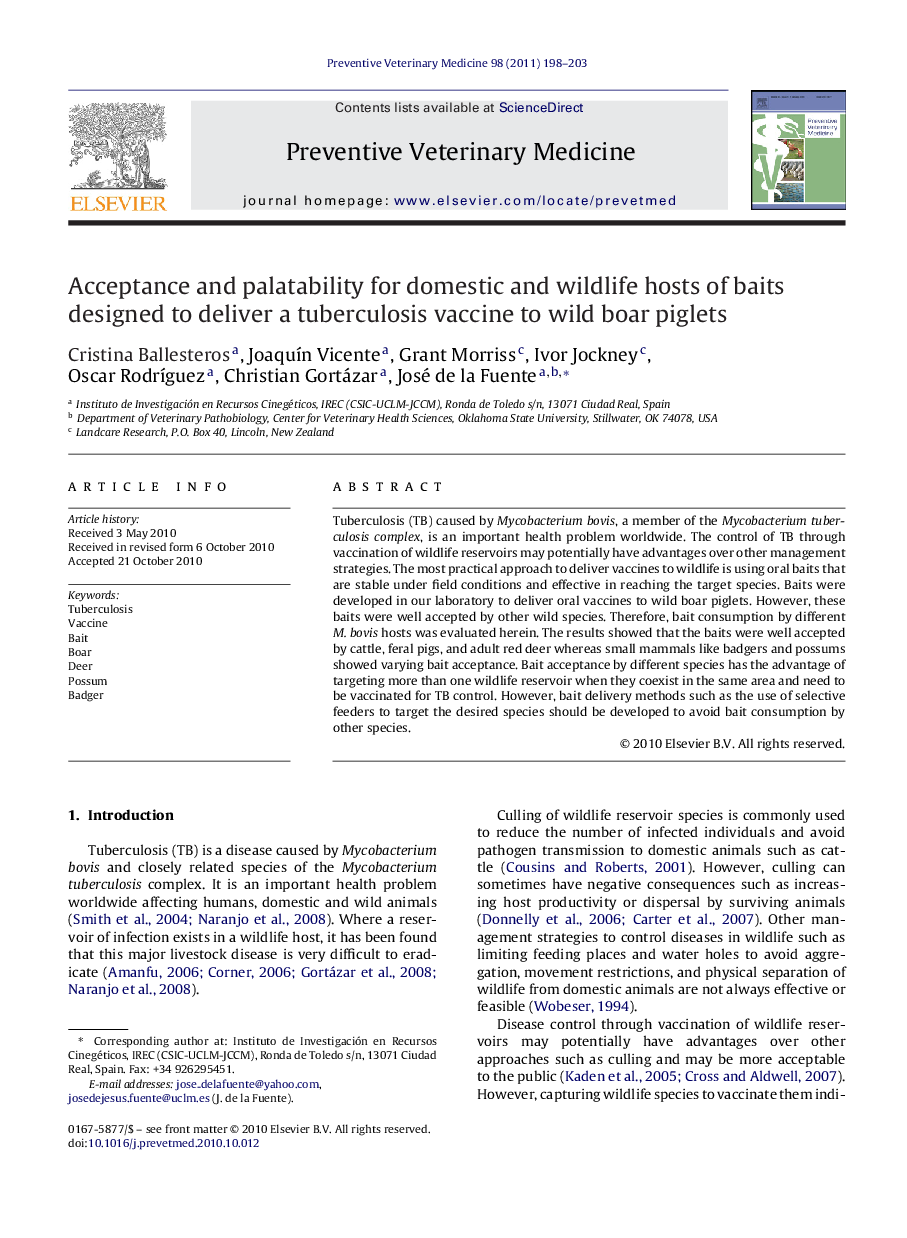| Article ID | Journal | Published Year | Pages | File Type |
|---|---|---|---|---|
| 2452941 | Preventive Veterinary Medicine | 2011 | 6 Pages |
Tuberculosis (TB) caused by Mycobacterium bovis, a member of the Mycobacterium tuberculosis complex, is an important health problem worldwide. The control of TB through vaccination of wildlife reservoirs may potentially have advantages over other management strategies. The most practical approach to deliver vaccines to wildlife is using oral baits that are stable under field conditions and effective in reaching the target species. Baits were developed in our laboratory to deliver oral vaccines to wild boar piglets. However, these baits were well accepted by other wild species. Therefore, bait consumption by different M. bovis hosts was evaluated herein. The results showed that the baits were well accepted by cattle, feral pigs, and adult red deer whereas small mammals like badgers and possums showed varying bait acceptance. Bait acceptance by different species has the advantage of targeting more than one wildlife reservoir when they coexist in the same area and need to be vaccinated for TB control. However, bait delivery methods such as the use of selective feeders to target the desired species should be developed to avoid bait consumption by other species.
